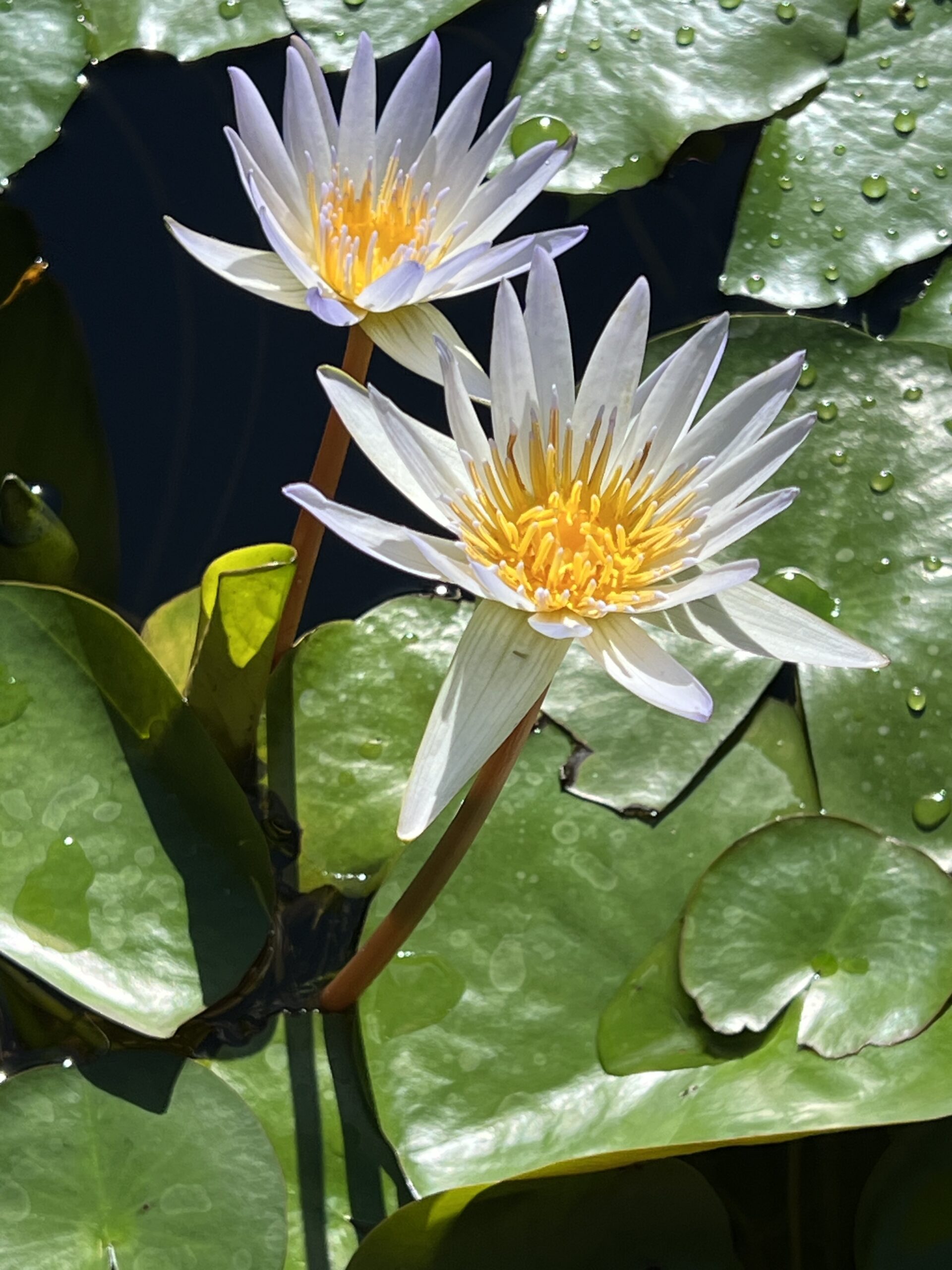“No kind action ever stops with itself. One kind action leads to another. Good examples are followed. A single act of kindness throws out roots in all directions, and the roots spring up and make new trees. The greatest work that kindness does to others is that it makes them kind themselves.” ~ Amelia Earhart
There are two small, drab-colored birds perched on a branch of the lime tree across the lanai from me. Nestled among the bright green leaves sits the bulge of a very ambitious, woven-palm-frond nest, about the size of a small melon, which curiosity tempts me to peek inside for signs of baby-bird-life. I resist the temptation, and let my gaze linger on the fluttery activity of the mature birds. I never see them enter or leave the nest, but I know they are wary of me, the one who occasionally pulls a ripe lime from a branch near their labor-intensive aviary.
Historically, we have contracted our property managers to knock down nests from the nooks and crannies of our cottage eaves, where, left unaddressed, birds will leave a mess of droppings and debris. But I have no heart for destroying the judiciously constructed nest in the lime tree, and this streak of empathy could be the result of having just read about kindness in the Daily Om blog to which I subscribed at the beginning of COVID. (I highly recommend it.) Sparing the nest and the potential lives of the eggs inside is a very small thing, I know, but, as the saying goes, charity begins at home. Though scrubbing up bird droppings from the deck suggests that “no good deed goes unpunished”, it also seems a small price to pay for letting the birds nest in peace, as it were.
With “kindness” as this week’s theme, an internet search yielded the Hawaiian word lokomaika’i. The Hawaiian Convention Center (HCC) blog provided me with insight as to how this value translates into civic life. The mission of the HCC reads quite differently from its counterparts in Vancouver, Edmonton and other mainland convention centers that I surveyed briefly:
“From beginning…to end – from meeting you with lei and aloha, to coordinating with your team and providing the best solutions for your event while brightening your day with an island treat or experience, to our aloha and mahalo goodbyes – we unselfishly give and share what we have to offer, and extend our talents with friendship and warm-heartedness…
“An essential element in helping us to accomplish this is lokomaika`i. The translation for lokomaika`i is to always act with generosity and kindness toward others. Lokomaika`i is an extension of aloha and love.”To me this is simply an example of Hawaiian culture and tradition translating into a business setting — a business serving other businesses while setting an example of kindness and generosity that they hope, as Earhart wrote, will have a domino effect. It is not the fault of other North American centers that they don’t speak the language of “aloha and love” that is peculiar to Hawaïi. Even here in the islands it is often more of an ideal than a practice, but it is only by putting them into practice, as the HCC is doing, that one can experience the true meaning and value of those ancient Hawaiian ideals.
Reflecting on the aforementioned ideals led to something of an epiphany this morning. (Now to see if I can put it into words). It dawned on me that kindness, like empathy, compassion, love and other lauded qualities, is a power that, like a river, flows through me as much as from me. If I offer a kind word or deed to somebody, if I am more generous and forgiving, I am channeling a certain energy that is a fundamental part of me. It’s not something external to me that I can acquire and then pass on to others like food or water. Or indeed, money. It’s more of an energy than emanates from a place deep within me, a place that connects me to the source of life itself. If I block it, if I decide not to say or do what my heart or conscience prompts me to do, the world will be none the wiser — but also that much poorer — for it. For some reason this minor epiphany struck me as incredibly meaningful.
Here I am with this capacity, this unlimited potential for kindness, love, empathy etc. that wells up from an infinite source within me, and yet, a part of me can so easily block that energy. Why would I do that? Why would I deem some people worthy of my benevolent attentions and deem others deserving of criticism, suspicion or enmity? Martha Beck, a noted life coach, explains that this pattern originates in our lizard brain, or limbic system, a primitive survival instinct that sees the world in terms of “lack-and-attack”, of scarcity and vulnerability. Like training wheels on a bike, the part of me that fears for my safety and survival, and which served an important purpose in more primitive times, can be seen for the evolutionary throwback that it is, when I lead an examined life. When I step away from my knee-jerk reactions and just observe what’s happening, I reclaim my power of choice. With that power I can choose to get out of my own way, and open the flow of love and aloha that is everyone’s birthright. Like the mission statement of the HCC, may the impact of my life be to spread the roots of lokomaika’i, kindness and generosity to the people (and birds) around me.
Now to go swab the lanai off.
